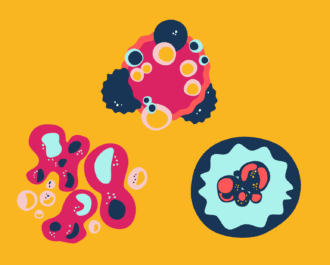
The results of a new study by senior author Professor Elgene Lim from the Garvan Institute of Medical Research, University of New South Wales in Sydney, gives hope to people whose breast cancer progressed following anti-estrogen therapy due to development of an insensitivity to the applied drugs (therapy resistance).
Approximately 70% of breast cancers are Estrogen Receptor Positive (ER+), which means that these breast cancer subtypes express estrogen receptors, which are stimulated by circulating estrogens leading to uncontrolled cell growth.
ER+ breast cancers are treated with anti-estrogen therapy to reduce either the levels of the hormone estrogen or to reduce the amount and function of estrogen receptors. Although current treatments are effective, people may develop therapy resistance to conventional anti-estrogen therapies and their cancers subsequently progress.
In an international phase 1 clinical trial, a novel oral anti-hormonal therapy, giredestrant was investigated for the first time in people with advanced breast cancer. Giredestrant was tested as a stand-alone and combination therapy with the CDK4/6 inhibitor drug, palbociclib. Palbociclib targets breast cancer cells by blocking the cell cycle which leads to reduced cell growth. The outcomes of the clinical trial show that giredestrant was well tolerated and clinically active despite exposure to prior anti-estrogen therapy.
The results published in Clinical Cancer Research show most importantly, that this treatment regime worked even in the presence of a mutated Estrogen Receptor, which usually makes it less responsive to conventional anti-estrogen treatment.
Professor Elgene Lim is funded by NBCF’s Endowed Chair Program, which comprises a long-term 10-year research grant.
This project’s focus has a clear line of sight to NBCF’s vision of Zero Deaths from breast cancer by finding new treatment options for breast cancers which have progressed despite been treated with anti-estrogen therapy.
Hear How Breast Cancer Treatment Has Improved
More News Articles
View all News


